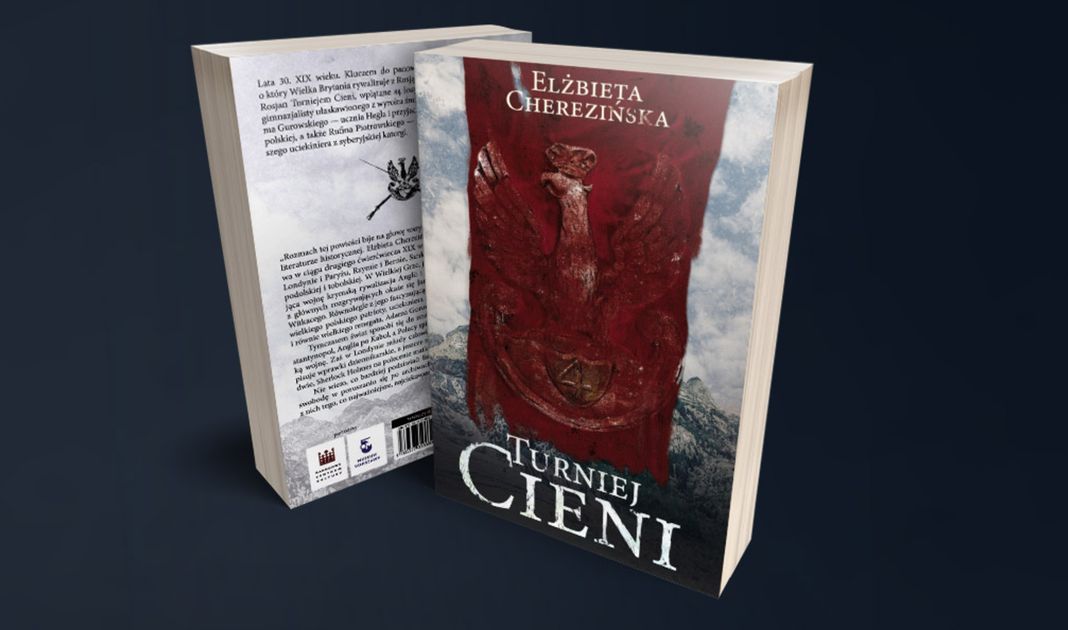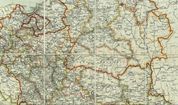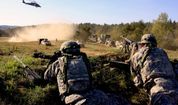“Tournament of shadows” by Elżbieta Cherezińska

These words are attributed to Alexander Burnes, a British explorer, traveller, explorer of Central Asia and spy, who on behalf of His Majesty’s government established contact with Bukhara. Burnes was assassinated in Kabul in 1841. His compatriot George Nathaniel Curzon – who served as Viceroy of India between 1899 and 1905 – famously called Afghanistan “the cockpit of Asia” and (less famously) the “battleground of Asia”.
Elżbieta Cherezińska invites us to this battleground. Her “Shadow Tournament” (Turniej cieni) is a momentous historical novel in which one of the most interesting geopolitical games of the past era takes place: a great clash between a lion and a black two-headed eagle; the rivalry between the British and Tsarist Russia for domination in Central Asia, for control of flows, for India. The British labelled this rivalry “The Great Game”, a term coined by Lieutenant Arthur Conolly of the 6th Bengal Cavalry Regiment, then propagated by Rudyard Kipling in the novel “Kim.” For the Russians its equivalent title was Война тене́й – the “Shadow War”.
Also taking part in the Game is a third party, Poland. Although the Poles have lost their country, the growing conflict in the east raises aspirations: there is hope for a war that will break Russia’s backbone and bring the longed-for independence. For Cherezińska (and for all of us, it remains to be hoped) this is the most important side, despite its weaknesses. It is not without reason that the story begins not in Kabul, but in Olszynka Grochowska, where in February 1831 the largest battle of the November Uprising took place.
At first he watched so as not to tread on the dead, but when the bullets began to whistle from the front, he just watched so as not to break the line. (…) His eyes registered a cool mist hanging above the ground, and an imagination awakened by Leonides suggested that these were the last breaths of the dead, which hung between the lips of the soldiers and the divine eternity that they could not yet reach.
In Olszynka, Rufin Josafat Piotrowski, an uncompromising patriot is freed from the monastic order during the November Uprising and sent to fight the tsarist troops. Adam Gurowski, the antithesis of Piotrowski, is also fighting. Gurowski is a useful idiot, a man whose ideological obsessions will lead to a renunciation of Polishness. Both heroes fall into a series of events that are driven by the third: Jan Prosper Witkiewicz. An emissary of Tsar Nicholas, a representative of the Orenburg Border Commission, a man with many faces, called Batyr in the steppes, Ivan in Russia, and Omar Bejem among the Persian Shahs. A fierce opponent of Alexander Burnes, joined with him in a dangerous race.
The tsar does not hide the fact that a strong Afghanistan is important to him as a country that is an impassable barrier between Russia and India. The Tsar is aware that the British want to make Afghanistan their own sphere of influence, which will become for them a bridgehead of the invasion of Russia.
Afghanistan also stands out in the extensive mosaic of places and characters (although we spend less time there than you might expect!), acquiring itself the characteristics of a collective hero. Cursed by geography, inhabited by a multitude of peoples and nations, it is slowly waking up from lethargy, torn like cloth. On the one hand, by the unbuttoned Shah Szujah, supported by Burnes and Calcutta, on the other, the ─ warlike Dost Mohammad Khan, followed by Witkiewicz and the tsarist diplomacy. Forced to react, Afghanistan will grab its swords. And he will utter words that are still resounding among its peaks and valleys.
He felt like he was thirty-five again and was the first player of the Congress of Vienna. Ah Vienna! Champagne was pouring in streams, the orchestras were playing the waltz from dusk to dawn, everyone roaming the dance floors in ballrooms slippers, English maids not wearing underwear under their dresses! In the smoke-strewn cigar cabinets, the geopolitics of the Holy Covenant were established, contracts sealed with cognac, then a waltz, dinner and love.
When discussing “Tournament of Shadows”, it is impossible not to mention the power of description ─ an art neglected by many authors today. Cherezińska uses language with deadly effectiveness, painting spaces that the imagination cannot resist. We wander through the sultry rooms of Russian diplomats in St. Petersburg, the damp cells of the fortresses in Orsk and Omsk to hit the Kyrgyz steppes – “a sea of grasses and sands and a sea of sky, both equally empty” – possessed by a burrowing breeze, a whirlwind which can lift a horse together with the rider. The Siberian wilderness also appears on the pages of the novel: raging nature, which in the summer can smother you with the scent of flowers and clouds of mosquitoes, only to freeze with cold in winter and crush you under a coating of snow. Finally, there is also Kabul, which we do not know and will never get to know.
The richness of the images does not obscure accurate observations about Polish, Afghan and other stories. An exceptionally tart assessment falls on Polish emigrants, meeting at Parisian salons. As in his homeland, so in Paris was the Pole an enemy of the Pole, and internal conflicts destroyed dreams of effective action. “Hypocrisy, lies and falsehood, that’s what!” – this is how one of the characters sums up the quarrels of emigrants, getting irritated at the inability to take specific actions at the time of the greatest trial.
Today, thirty-year-old Witkiewicz, instead of black and white, saw around him a tournament of shadows that blurred the contours and sides, but it was to this place and to this moment that fate had been pushing him since he took up the game. At that time he thought that the whole thing would be faster and simpler, he was driven by youthful naivety; now he knew he had to wait for the right events and people to come his way.
In “Tournament of Shadows”, truth smoothly turns into fiction. The novel does not replace history textbooks ─ but it does not pretend to do so. Elżbieta Cherezińska moves freely and gracefully through the history of the world, penetrates decades, capturing subsequent Polish themes and combining them into an intriguing whole. She cleverly embroiders the plot on historical events and characters (all the heroes mentioned are historical characters) to “bring out, from the shadows of heroes, nineteenth-century Poles whose biographies seem perfectly suited the pages of the novel”.
Extracted from the shadows, Cherezińska’s heroes are fascinating. A lot of determination, a lot of responsibility. Would we be able to afford this type of sacrifice in key moments? To face the awareness that some things “were, are and will be”?
Their complicated history reminds us of an important lesson that they probably already had to grasp at the time: cards are dealt by geography, but people have to play them.
Autor
Olga Kowalska
Graduated in Polish and Romanian philology at the University of Gdańsk. Creator of the literary blog and accompanying YouTube channel - http://WielkiBuk.com, which she has been running since 2012. Reviewer and literature promoter. She conducts author meetings, interviews with writers and workshops related to promoting personal brands on the web. She works in a small company dealing in multimedia services.






Trwa ładowanie...